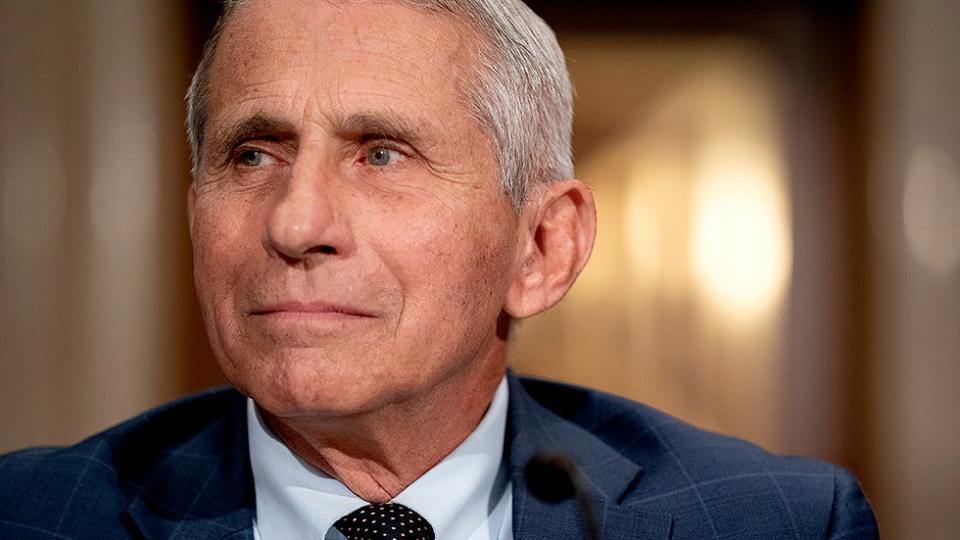Fauci says 'troublesome' omicron 'might evade immune protection'

President Biden's chief medical adviser, Anthony Fauci, on Sunday called the newly discovered omicron variant of COVID-19 "troublesome" and raised concerns that it "might evade immune protection."
"Right now, what we have is we have the window into the mutations that are in this new variant. And they are troublesome in the fact that there are about 32 or more variants in that very important spike protein of the virus, which is the business end of the virus," Fauci said during an interview on NBC's "Meet the Press."
"And there are about 10 or more of these mutations that are on that part of the virus - we call it the receptor binding domain - that actually binds to the cells in your nasopharynx and in your lung," Fauci continued. "In other words, the profile of the mutations strongly suggest that it's going to have an advantage in transmissibility and that it might evade immune protection that you would get, for example, from a monoclonal antibody or from the convalescent serum after a person's been infected and possibly even against some of the vaccine-induced antibodies."
Though Fauci confirmed that the omicron strain has not yet been detected in the U.S., he said on ABC's "This Week" that it was "inevitable" that it would hit the country.
Fauci's comments come as scientists are racing to learn more about the variant, which was first found in South Africa.
The director of the National Institutes of Health, Francis Collins, said during an interview on "Fox News Sunday" that it would take several weeks for scientists to better understand whether omicron could evade the protection of the COVID-19 vaccines.
However, Collins said that because the COVID-19 vaccines have been effective against other variants such as delta, there was reason to believe that it also be effective against omicron.
"Given that history, we expect that most likely the current vaccines will be sufficient to provide protection. And especially the boosters will give that additional layer of protection because there's something about the booster that causes your immune system to really expand its capacity against all kinds of different spike proteins, even ones it hasn't seen before," Collins said.
This story was updated at 10:52 a.m.

